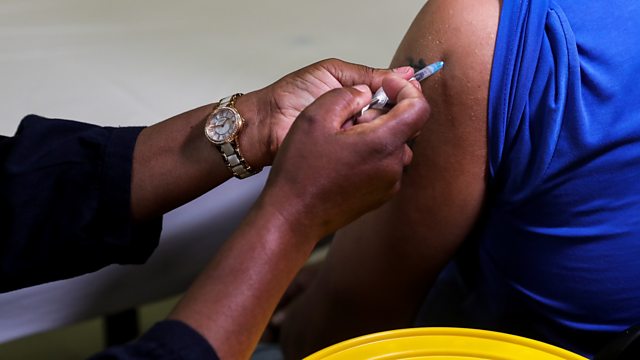South Africa: How deadly has Omicron been so far?
Fewer people are being hospitalised with the latest variant - which scientists say may be thanks to our T cell immunity, stimulated by previous infection or vaccines.
Just how dangerous is the Omicron variant? In South Africa - where it was first identified three weeks ago - it's spread far more quickly than previous variants because it is 'antibody evasive'. But in the three weeks since it was first identified, hospital admissions haven't risen to the same extent as they did when the Delta variant spread.
One of the scientists at the forefront of analysing it is Shabir Madhi, Professor of Vaccinology at the University of the Witwatersrand, in Johannesburg. He says the working theory is that while people's antibodies are failing to protect them from catching the disease, the T cell immunity of those who have either previously had it or have been vaccinated, is protecting them from more serious illness.
"Yesterday there were about 20,000 cases that were reported and there were about 25 people who died of Covid-19. During the course of the Delta variant wave, when there were 20,000 cases being reported in South Africa, the number of people that were dying each day was between 250 and 300. So there seems to be an uncoupling of the high case rate and the hospitalisation and death rate."
(Photo: A healthcare worker gives a vaccine to a man in Johannesburg. Credit: Reuters)
Duration:
This clip is from
More clips from Newsday
-
![]()
'I immediately called my mother, I told her that I was alive'
Duration: 02:21
-
![]()
'People on both sides have suffered enough'
Duration: 04:44






